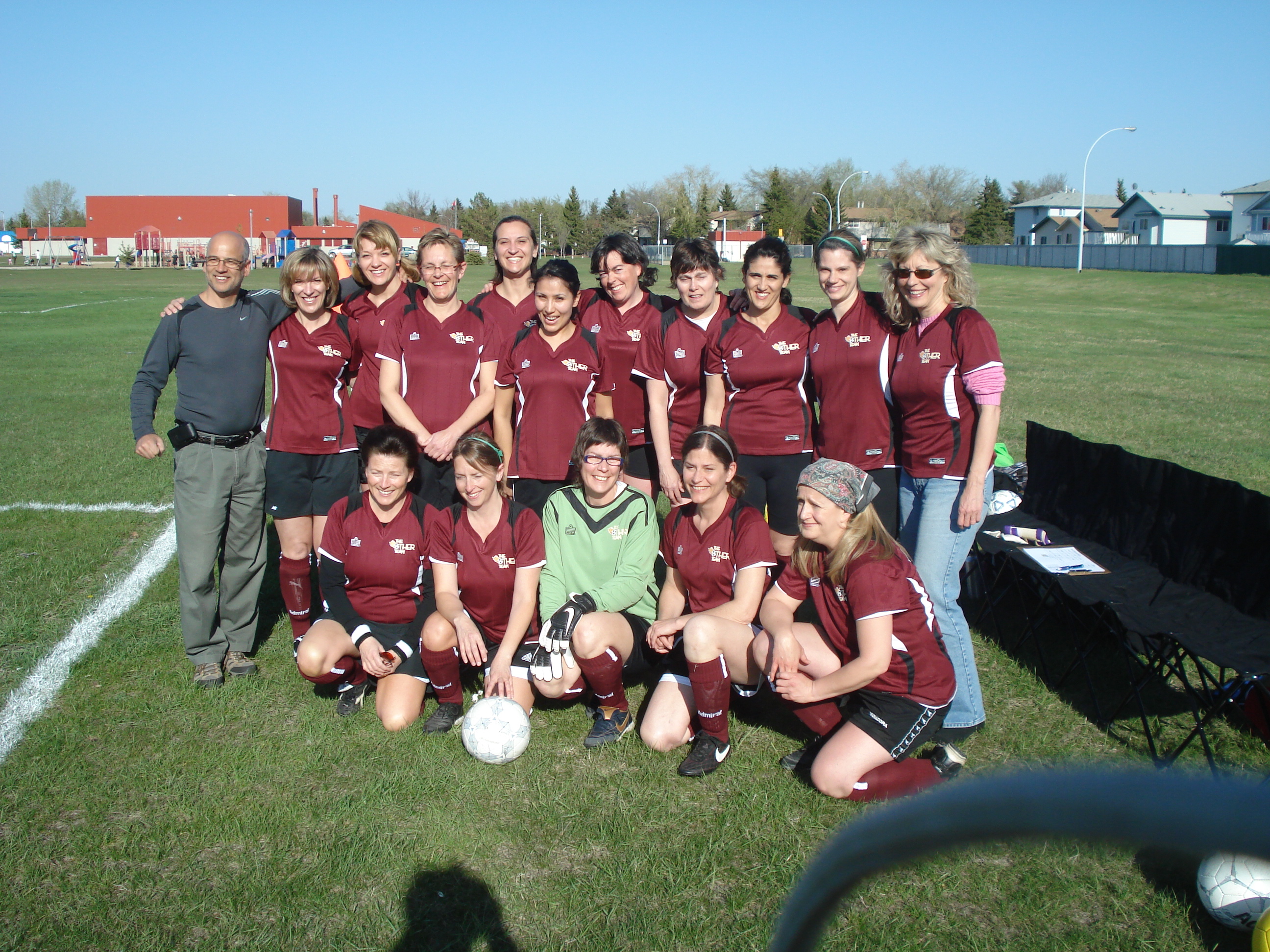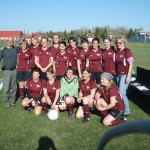The panic set in as we realized moments before our soccer game that the required game sheet and player cards were in a teammate’s living room. They could be retrieved – maybe – just in time to avoid forfeiting our game. Coach Tim hit the road – he knew it was a 7 minutes drive each way. We had 10 minutes until the formal start time. After that it was up to the referee. Tim had 10 minutes to run a 14 minute mission.
We broke the bad news to the team. We were here to play a game that we could probably win, but we might default. We entered the field and began our usual warm up while Assistant Coach Dan spoke to the referee. As players, we were pretty sure that if we didn’t have the sheet and cards by game time, we would forfeit. It was a half-hearted warm up.
The referee decided to start the game 10 minutes late, without forfeit, if the sheet and cards arrived by then. This grace period gave Tim 20 minutes to run a 14 minute mission.
So there we were, with a much longer than usual warm-up, forever checking the clock as the numbers counted down. At first, it just felt strange to have more than 5 minutes to warm up, then the panic started to set in. After 15 minutes, Tim had not returned. I kept having to remind myself that my job, as a player, was to get ready for the game. But the game around the game was front and center when time was getting tight, with only 3 minutes left: Tim should not park, but drive right to the door and run in; we should send a fan to the door and run in the sheet and cards.
Again, a reminder to get ready for the game. The extra ‘drama’ around this game was a distraction. When Tim did return, I had to be ready to jump on the field and play.
With less than a minute to spare, after catching all possible red lights, Tim arrived with the game sheet and player cards. We played a shorter than usual game. The distraction didn’t win – we were ready for the game and won 4-0.
_____ _____ _____
This soccer team is a group of neighbours and friends who decided to learn to play soccer in 2008. We practiced for a full year before fielding our first team in 2009. We have learned a lot along the way.

In my very first blog post in 2009, What does soccer have to do with leadership?, I noticed that the the lessons we were learning on the field apply to life. Simple principles :
- My mate will only do her best if I give her the space she needs.
- To give her the space she needs, I must trust that she can do it.
- My worries about protecting our net harm my team’s ability to reach our goal.
- Trusting my mates makes me open to the play around me.
The learning, as we field a team for our 5th season this summer, continues. I have learned that even when off the field, taking time for a rest, serves time on the field (Is it time to sub off?). At the end of season one, the words of my teammate Veronica reverberated: when I have the ball I can’t see anything else. Our discussions as a team revealed a lot about how our cities and neighbourhoods work too, about how we panic when its our turn with the ball, and how we don’t have to be comfortable with a situation to be able to see. We just need focus, flow and fun.
There was a point when I realized that there is a game around the game: soccer isn’t really about soccer (the yellow card story). There are layers of game, and a field around the field. There is a game underway physically on the field bounded by the rules, and the strategy, influence, and even manipulation we engage in to either ignore the rules or turn them to our favour. We also learn, playing a physical game at our age (we range from 38 to 56), that we each take turns having to sit on the sidelines due to injury, losing our chance to play the game but gaining opportunities for other things. Two years ago, I received the gift of the sprained ankle, and a whole other perspective of the game: that in a given situation, I can put my energy into fighting or choose to look for unexpected avenues to explore.
As I reflect on my neighbourhood friends and our quest to learn a game new to all but one of us, I see that we are practicing, as friends and neighbours, the wisdom of a 10-year-old friend:
- If I do something right, I want to hear about it. I need to know what I am doing right.
- If I do something wrong, I want to hear about it. I want to learn how to play the game better.
- It is really hard to hear that I am doing something wrong, but I want to hear it anyway.
- At times, people are not so good at delivering a message, but I will look past that because I want to hear what s/he has to say.
We are growing as a team and a neighbourhood, on and off the field. Our relationships serve us in private and personal ways, and also professionally. Our relationships surface in our work in neighbourhood volunteering. Our families all connect too – it is a big soccer net supporting us and those around us.
Our work is supporting the potential in each of us.
What relationships support the potential in you?
_____ _____ _____
This post is part of Chapter 7 – (Un)known Possibilities. Here are some plot helpers of Nest City: The Human Drive to Thrive in Cities, the book I am sharing here while I search for a publisher:
- My decision to share the book while I am working on it
- The overall structure of Nest City’s three parts
- The plot for Part 2 – Organizing for Emergence (Chapters 4-7)
